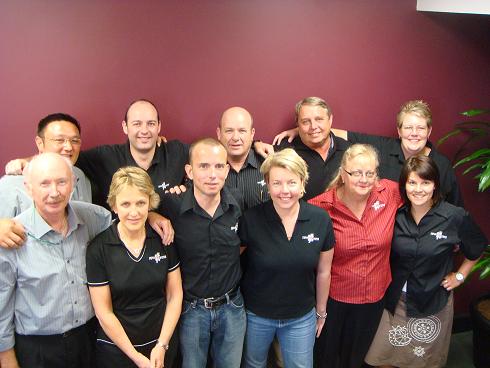I’ve owned my newsagency at Forest Hill in Victoria since February 1996 and over the twelve years have been independent, with Newspower and with Nextra – before joining newsXpress in mid 2005. What I looked for in a group was business building strategies as well as excellent commercial terms. While I am biased about newsXpress, since I’m now a shareholder, my relationship with this brand has been the best for my business.
While any of the marketing groups can negotiate brand based deals, it’s the team behind the brand which drives the point of difference. Below is a photo of the full-time team behind newsXpress. From the national merchandise team to the in-store Business development Managers, this team represents an exceptional resource for my business and the businesses of all newsXpress members.

As with any of the marketing groups, newsXpress is not for everyone. It’s for entrepreneurial newsagents who want to redefine their newsagency and fish for new customers and a build a more valuable shopping basket. Chasing above average growth is hard work and not for everyone. But, then, good rewards do take hard work.
I’m glad to have good relationships with many Nextra and Newspower newsagents. Those groups, too, are not for everyone. I am sure their members would be equally complimentary of them.
Key in assessing a newsagency marketing group is to look at its goals for members and the people who will help you achieve those goals. Finding the right group backed by the right people can make your newsagency a truly valuable investment. The team behind newsXpress is a good mixture of hands-on newsagency experience as well as experience from outside our channel which benefits the brand.
The days of the independent newsagent are coming to an end. Without a well-managed brand behind your business it is easy to get lost in the rush to lure new customers.
Disclosure: I am a shareholder in and Director of newsXpress Pty Ltd.

